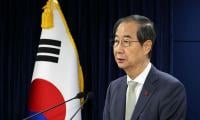ISLAMABAD: Chief Justice of Pakistan (CJP) Justice Umer Ata Bandial Wednesday said the Election Commission of Pakistan (ECP) was a constitutional institution that the apex court will protect and if there was any malpractice in transparent elections, then the court will intervene.
This observation from the country’s top judge came during the hearing of a petition filed by former CCPO Lahore Ghulam Muhammad Dogar challenging his transfer order.
A three-member bench of the apex court — headed by the chief justice — dismissed Dogar’s petition as withdrawn.
The court took an exception to the allegations being made against the apex court judges in audio and video leaks and vowed to protect the judiciary.
The chief justice observed that every day new audio and video leaks were surfacing, making baseless allegations against the superior judiciary.
Justice Bandial said the Supreme Court was a constitutional institution, which was being attacked through audio and video leaks.
“What is the legality and authenticity of these audio tapes, making baseless allegations against the judiciary?” the CJP asked.
Justice Bandial said they respected the institutions but also expected that being a constitutional institution, the judiciary should also be respected.
“We are showing restraint and patience but it does not mean that baseless allegations be made against us in audio and video leaks,” the CJP remarked and vowed to protect the judiciary.
The chief justice said sometimes remarks of the apex court were misinterpreted adding that in a case, the court had observed that there was an honest prime minister in 1988 but its remarks were misunderstood by the parliament.
“We did not say that only one honest prime minister had come so far,” the chief justice added.
Abid Zubairi, counsel for former CCPO Lahore, withdrew the appeal. He submitted that after the establishment of caretaker government, the election schedule had been released.
Sajeel Shahryar Swati, counsel for the Election Commission of Pakistan (ECP), submitted that under Article 218 of the Constitution, it was the responsibility of the ECP to conduct fair and transparent elections in the country.
The ECP had filed a Civil Miscellaneous Application (CMA) with the apex court praying to be impleaded as a party to the instant petition and heard accordingly in the interest of justice.
Defending the postings and transfers of officials, it was submitted that the Election Commission had the authority to make changes to the bureaucracy to ensure a level playing field during elections.
The ECP counsel contended that even the caretaker government made postings and transfers of the officials after consulting the electoral watchdog.
Chief Justice Umer Ata Bandial observed that under Article 218 of the Constitution, the ECP used the power of transfer to ensure a fair and transparent election.
The chief justice further observed that the ECP could give orders to the caretaker government to transfer officers adding that it had been established now that the caretaker government made postings and transfers with the approval of Election Commission.
“ECP is a constitutional institution that we will protect and if there is malpractice in transparent elections, we will intervene,” the CJP remarked.
Justice Yahya Afridi asked the counsel as to when did the ECP use the power of postings and transfers and when did the electoral body approve Ghulam Muhammad Dogar’s transfer.
Swati replied that the Election Commission of Pakistan gave oral approval to the caretaker government for the transfer of CCPO Lahore on January 23.
The counsel further submitted that the caretaker government had decided to change the entire bureaucracy for ensuring transparency in the election.
At this, the chief justice observed that the Election Commission of Pakistan (ECP) had wide powers. “In order to ensure transparency, all the political parties should get equal opportunity in elections,” the CJP remarked and said the electoral watchdog should not give open powers to the caretaker government for transfers.
The Chief Justice observed that the Election Commission of Pakistan should ask the caretaker setup about such postings and transfers.
It is pertinent to mention that last month a three-member bench of the apex court — headed by Justice Ijazul Ahsen — had reinstated CCPO Lahore Ghulam Muhammad Dogar after suspending the transfer order made by the caretaker government of Punjab.
The court had referred the matter of Dogar to a bench already hearing cases of postings and transfers in the Punjab Police.
Later on March 7, the Election Commission of Pakistan (ECP) filed a Civil Miscellaneous Application (CMA) with the apex court praying to be impleaded as a party to the instant petition and heard accordingly in the interest of justice.
In its CMA, the ECP had submitted before the court that CCPO Lahore Ghulam Mahmood Dogar had inclinations towards a particular political party and therefore he would not be able to fulfill its constitutional duties if he remains the head of Division during the conduct of provincial assembly elections in Lahore.
The ECP had prayed the apex court that being a constitutional body, it may be allowed to be impleaded as a party to the instant petition.
The ECP had contended that it was charged with a constitutional duty to ensure that the elections were conducted honestly, justly, fairly and in accordance with law and that the corrupt practices were guarded against.
Distribution took place in camp in district Hangu, providing timely relief to displaced families in need
Western countries call for united front in support for Ukraine, saying no decisions could be taken without Ukraine’s...
ATC orders Gandapur to appear by January 21, 2025, failing which he will be declared proclaimed offender
Circular says authority decided to invite applications from SC advocates who desire to be included in panel
Jet was en route from country’s capital Baku to city of Grozny in Chechnya, southern Russia
Pension of retired chief justices and judges of SCP has also been revised with increase in their monthly pension







